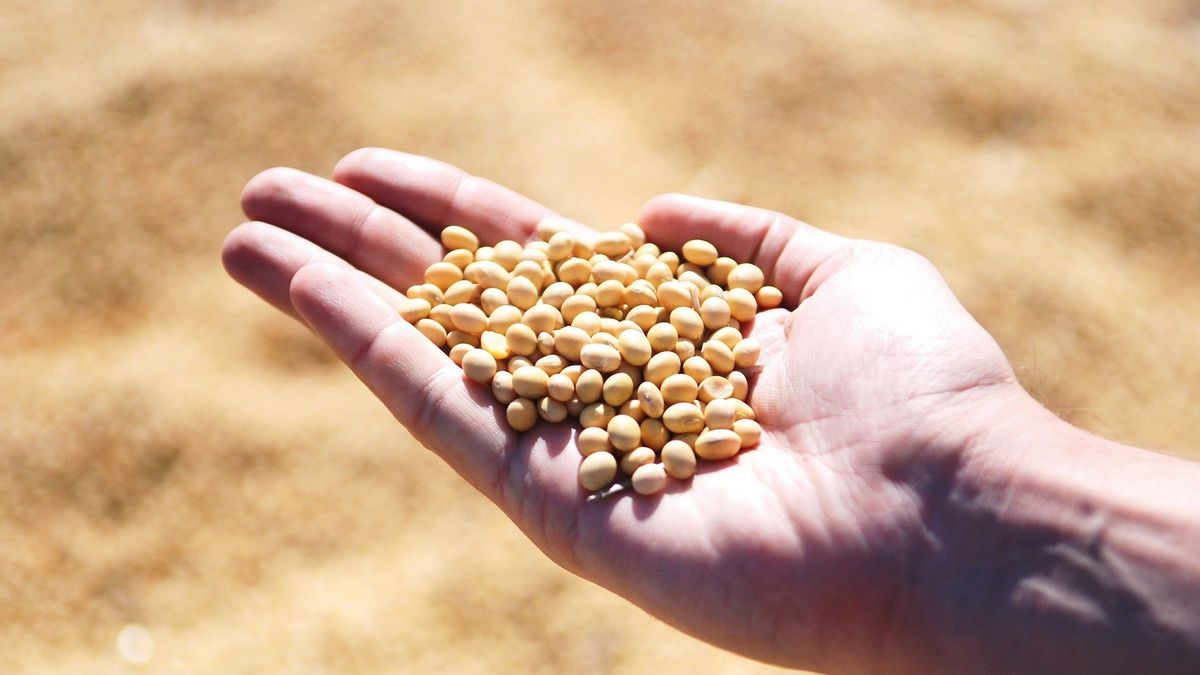JAKARTA - Member of Commission XI DPR RI from the PKS faction, Anis Byarwati, gave a red note in early 2021 regarding the scarcity of tempe and tofu due to the soaring price of soybeans. This is because the increase in soybean prices occurred during the COVID-19 pandemic and economic recession.
"Meanwhile, tofu and tempeh are the staple foods after rice for the community," said Anis in a statement received by VOI, Wednesday, January 6.
The Chairman of the DPP PKS for Economy and Finance said the first note was that data problems were always a major factor and a problem. He said, Indonesia is an agricultural country, but its agricultural sector is not developing, even continues to decline.
"One of the reasons is the national food policy which is not based on strong data and is binding on all stakeholders," said Anis.
Based on data from The Food and Agriculture Organization (FAO), the average price of soybeans in December 2020 was recorded at 461 US dollars per ton, an increase of 6 percent compared to the previous month which was recorded at 435 US dollars per ton.
One of the main factors causing the increase in world soybean prices is the surge in demand for soybeans from China to the United States as the world's largest soybean exporter. In December 2020, China's demand for soybeans doubled, from 15 million tons to 30 million tons.
The second note, Anis emphasized that there must be efforts to increase local soybean production and control imports. This is an opportunity as well as a challenge for the government to optimize domestic soybeans so as to improve the welfare of soybean farmers.
"As we all know that the condition of soybean farmers was crushed by the free market policy in 1995. Initially local production could meet 70-75 percent of soybean needs, but currently it is reversed because about 70-75 percent are now met from imports," said Anis.
Apart from the import policy, the fact is that the government has difficulty boosting domestic soybean production. The Ministry of Agriculture had targeted soybean production in 2019 to reach 2.8 million tons to meet the estimated demand of 4.4 million tons. However, until October 2019 only 480,000 tonnes or 16.4 percent of the target had been achieved. In 2018 it was also the same, from the target of 2.2 million tons of soybean production, only 982,598 tons were realized.
Third, this legislator from the electoral district of East Jakarta highlighted the optimization of the use of Village Funds. One of the evaluations that must be carried out is related to the use of Village Funds to develop village potential. Programs organized from village funds should have the leverage to revive the rural economy.
"The Village Fund should be allocated for food security programs. And one of them is for local soybean development, "said Anis.
In 1992, Indonesia had self-sufficiency in soybeans, and at that time the production from Indonesian soybean farmers reached 1.8 million tons per year.
Fourth, Anis suggested that the Government immediately improve the trade system for food needs and pay attention to the importance of active collaboration between related Ministries and Institutions to create food price stability.
“The increase in soybeans is one of the problems which is actually a recurring occurrence. And this must also be anticipated for other staples such as rice, eggs, meat, chilies, onions and many other food products, "he explained.
Fifth, Anis also emphasized that the Government should take firm action against speculators who practice hoarding. The Ministry of Trade (Kemendag) must revoke the Trading Business Permits (SIUP) of parties proven to have violated the rules without exception.
"This firm sanction is a lesson or shock therapy for speculators so that they no longer carry out hoarding actions because they can cause unreasonable prices," he concluded.
The English, Chinese, Japanese, Arabic, and French versions are automatically generated by the AI. So there may still be inaccuracies in translating, please always see Indonesian as our main language. (system supported by DigitalSiber.id)








